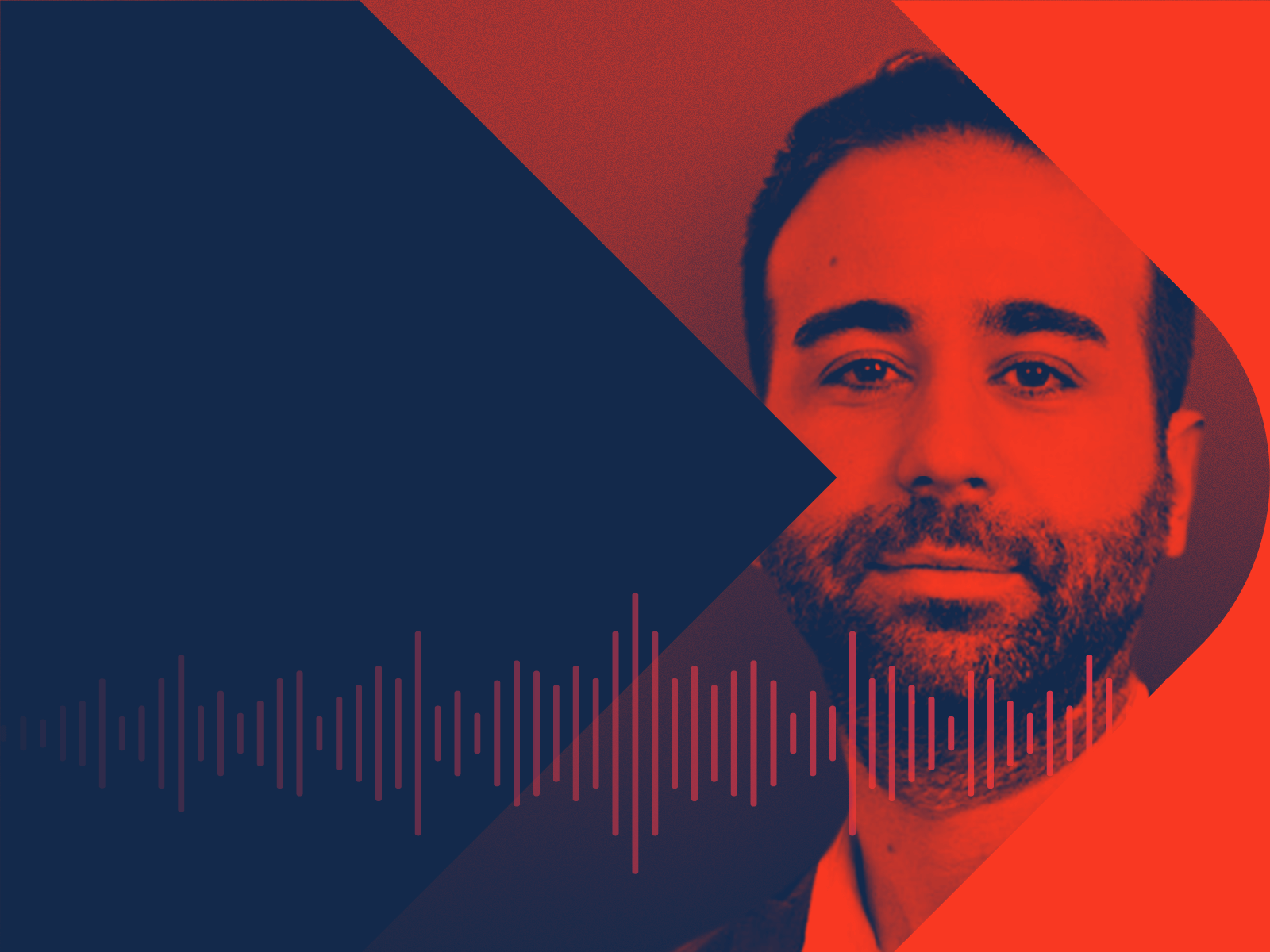“Advocacy, allyship, and action”
Impactful marketing in the digital age strikes the right balance between data and emotion. Fusing the two together intelligently is the recipe for a high-performing campaign that resonates deeply with consumers. However, it’s easier said than done, especially with many of the industry’s most significant changes happening simultaneously.
In the latest episode of our Identity Architects podcast, InfoSum's VP, Corporate Marketing, Ben Cicchetti, sat down with Rachel Peace, UK Managing Director at Hearts & Science, to discuss cookie deprecation, key industry trends, retail media, data ethics, DEI, allyship, and more.
“There are times where you look at briefs and you look at campaigns and it's all about the emotional connection. [...] Or alternatively, it could all be about how we kind of optimize data and efficiencies for clients. [...] The brilliance of bringing both gets you to a phenomenal solution.”
On the topic of data, the main talking point on everyone’s lips is cookie deprecation. With third-party cookies being the basis of data behind digital campaigns in recent times, how is Hearts & Science preparing its clients for the future?
“It's about almost having a look at it as a roadmap and a three-stage approach. The first one is about educating and really understanding and having a very transparent conversation with our clients about the implications of cookie deprecation on their activity now. [...] The second part of that is about helping them identify how they can fully embrace their paid, owned, and earned. [...] Finally, for us, it's about building out a suite of privacy-first solutions and measurement solutions in that space, whether that's bespoke or whether we're co-creating that with clients.”
While there is no silver bullet for the cookieless era, there is something the whole industry agrees on, and that’s the importance of first-party data. Building first-party data assets or forging data partnerships to leverage second-party data is critical in the cookieless world.
“So for us, it's about making sure that we really pride ourselves with working with clients, about looking at how, particularly on first-party data, we can enrich that further by looking at diverse data sources or other relevant data sources. Be that attitudinal, motivational, and behavioral, how we can bring that to life and how we can enrich that further to really make sure it's essentially fit for the future.”
For many brands, relevant and diverse data sources don’t come much better than that from retailers. Retail media has rocketed onto the scene and shows no signs of slowing down in the coming years.
“I don't think retail media has reached anywhere near its peak, and I think we're now seeing the second wave of clients coming through retail media. It's a very exciting space, and it's only gaining momentum.”
While cookie deprecation and retail media may dominate headlines, they aren’t the only trends the industry is focused on. Exciting trends and technology are emerging that will define how marketers create, build, and deliver campaigns.
“I don't think you could talk about 2024 without mentioning AI. […] I think AI combined with marketing and comms, and how it's transforming brands, agencies, and partners is a really exciting area. Other areas that are kind of really quite exciting for me currently at the moment, it feels like tech advantage around driving attention, both from a creative and media effectiveness, is now becoming established mainstream but is actually going through an element of regrowth again.”
As with anything, it’s important to remember the basics. Rachel was quick to remind us of the importance of measurement. It’s vital to have a firm grasp and understanding of the impact new technologies and solutions have on marketing performance and business outcomes.
“I think with all of these trends it's really important that we really understand and measure the effect. And those companies and partners that are developing really holistic measurement solutions that really can measure those technology, and keep pace with the scale and the size of trends growing are the ones that are going to win out in the future.”
Of course, data generated by consumers underpins all of these emerging trends. When it comes to powering data-driven advertising, we need to remember that using that data is a privilege and shouldn’t be taken for granted.
“The number one stakeholder in all of this is consumers. That's what we've got to remember because it is a relationship and it's a trusted relationship, and as we say consumers have never been more savvy about how their data is being used. […] They will vote very quickly with their feet or their pounds spent.”
Consumers are a critical part of the ecosystem, and without them, it ceases to exist. With consumers’ heightened awareness about how their data is used, combined with rising privacy legislation, organizations need to think carefully about how they use customer data or risk the consequences.
“There's a difference between compliancy and ethics for us in this space, and it's about just because we can do something doesn't mean we should do it. […] At your peril, you say that consumers are not savvy about data and about how their data is being used and you only have to get it wrong once for them to cut the entire relationship with the brand so it is a massive privilege.”
Switching away from data-driven advertising, Rachel spoke about a topic close to her heart: diversity, equality, and inclusion. The industry has made good progress recently but we must continue on this path of raising awareness and supporting diverse communities year round. Not only is it important from a societal perspective, but also it’s actually better for business.
“Anybody who sits in a diverse group is inherently, it's part of their identity. It's part of who they are, and nobody should ever feel that they have to hide parts of their identity or true self or minimize them or be essentially open in any environment, but particular work environment I feel nowadays, to be kind of put upon or labeled by lazy stereotypes. I think that’s really important.”
Absolutely. And when it comes to increasing diversity across the industry and within companies, everyone has a role to play and a responsibility to affect positive change.
“I think education and awareness is critical first steps in the journey. But I think we've talked about it a lot again at Hearts & Science, about we want to move to the next stage, and for us it's about positive advocacy, allyship, and action. [...] You've actively got to make sure that you are leaning in hard, and you are constantly educating yourself.”
So, what can we do as an industry to embrace, celebrate, and increase diversity? As Rachel rightly points out, being in the advertising industry, we’re uniquely placed to champion and promote diversity in the work that we do everyday.
“We have a real opportunity to be part of the bigger conversation, to be part of cultural conversations, take that responsibility seriously. […] If you speak to your friends, if you speak to your family, people speak very openly about the importance of seeing people that look and talk and sound, and really talk about lived experiences like them, and I think you know it has a huge impact on their lives.”
Thanks, Rachel, for the chat!





